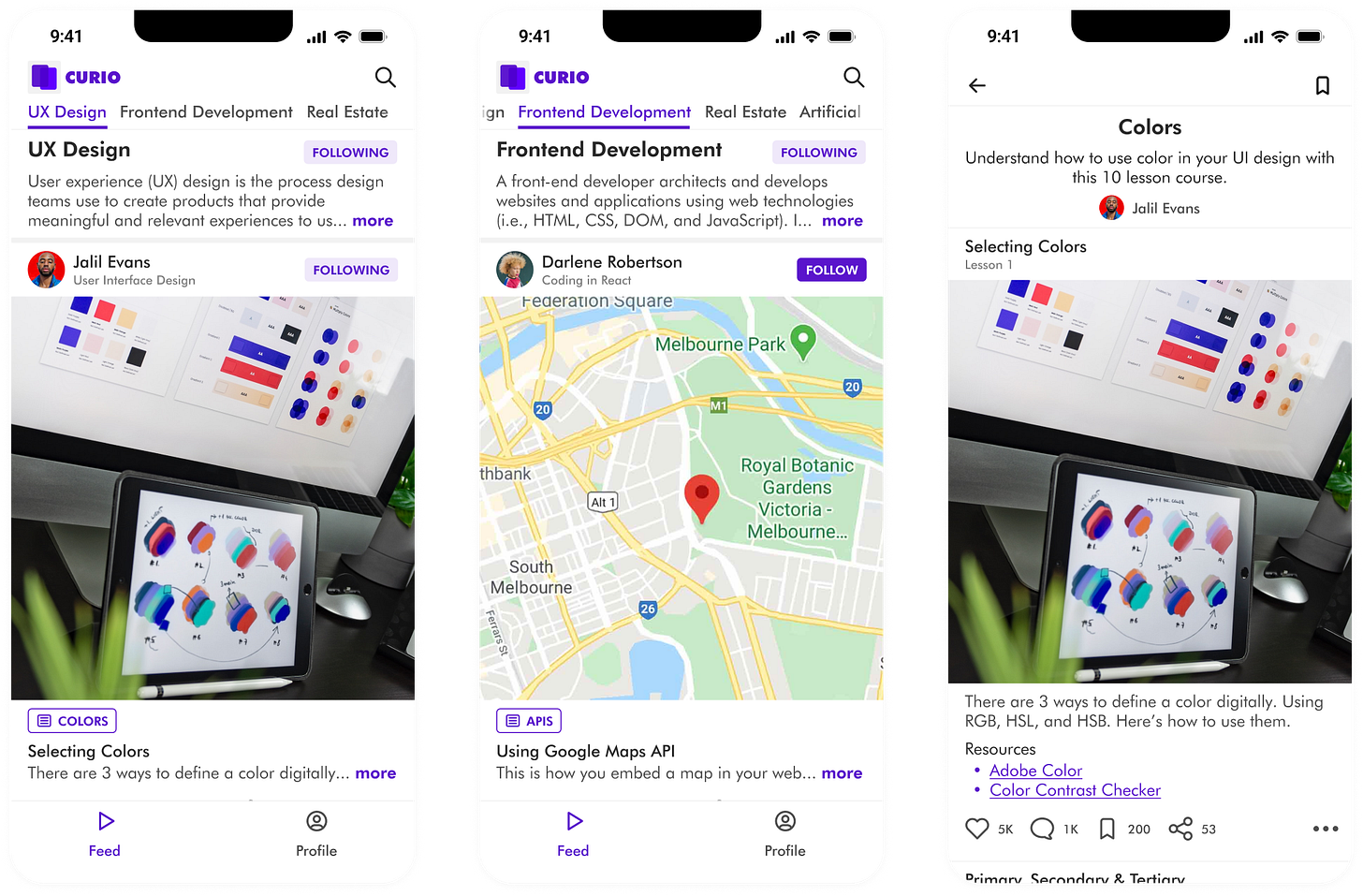“Every action you take is a vote for the person you wish to become." - James Clear
Actions speak louder than words.
Happy new year family. How has your January been? Are you making progress toward the goals you set for yourself this year?
I believe that strong habits are the most important ingredient in achieving your hopes and dreams. To take it one step further, you need a game plan that is grounded on good habits. It’s not enough just to wish it to happen. Your future is manifested through your present actions.
Now ask yourself (and be honest): based on how you spend your time now, what will your life look like in 5 years? How about 10 years? Are you satisfied with that reality?
I asked myself this question last year. My time was essentially split between work at Meta, boxing, reading, watching Youtube, hanging out with friends, and talking to my girlfriend. Given those habits: in 5 years I would be a strong designer, a pretty decent boxer, and fairly knowledgeable. In 10 years I would be a great designer, a good boxer, and very knowledgeable. Doesn’t sound too bad, except it was nowhere close to my dreams and ambitions. When exactly was my $100 million global tech company supposed to appear? That’s when I realized I needed to change how I spend my time in order to make my dreams a reality.
The next step for me was to figure out what new habits I needed to implement. So how do you take a goal and make it actionable? You create a game plan.
Whatever goals you have, there will be obstacles standing in your way of achieving it. The way you view these obstacles is a key indicator of your future success. Most people see obstacles and get discouraged by them, viewing them as a reason to stop pursuing their goal. Instead, look at obstacles as an opportunity to learn, and as a guide to figure out what you need to be doing.
Ask yourself: what is your goal — and why can’t you achieve it right now?
For me, I don’t have a global tech company for a few reasons:
I don’t have a team.
I don’t have the business knowledge to run a company.
I don’t feel comfortable in my technical skillset.
I don’t know what I want to build.
Based on this list, there’s plenty for me to be doing…
I don’t have a team, so I should find opportunities to network (e.g. conferences, work chats, this newsletter, etc.)
I don’t have the business knowledge to run a company, so I should take courses on product management, leadership, marketing, and so on.
I don’t feel comfortable in my technical skillset, so I should take more design courses, read, and practice new skills at work.
I don’t know what to build, so I should spend 30 minutes per day brainstorming ideas.
Create your own version of that list, and figure out a reasonable timeline for getting those things done. Figure out which of those things make most sense to start doing now. And start doing them… now.
Don’t worry if it looks like it will take months or years to get through everything. I started my design journey in 2019. The reason I was able to secure a full-time position at Meta was through doing the same few things over and over again - designing, reading, and networking. Trust the process 🤝.
“Most people overestimate what they can do in one year, and underestimate what they can do in ten.” - Bill Gates
Do something(s) that will get you 1% closer to your goals every day — because there is no other way to make progress.
My month in review.
Speaking of habits, this year I want to come up with a new startup idea every 4 weeks. I plan to spend 1 week discovering & defining a problem, 1 week developing a solution, 1 week sharing the solution, and 1 week reflecting. I spend around 1 hour each day working on my startup ideas. I’m doing this in order to:
Get my mind used to finding new business opportunities.
Practice my design skills.
Have an inventory of ideas that I can pursue longer term. Hopefully having all these ideas will help me look at their value objectively, and avoid getting too attached to any one idea.
On the side, I enrolled in a user interface design course called Shift Nudge. It teaches the ins and outs of visual interface design. The course is teaching me about typography, layout, color, style, imagery, elements, and other tactics. I try to watch at least 3 lessons per week. Growing my visual design skillset is one of my priorities this year.
Startup Idea #1 - Curio
This month, I wanted to take a swing at the educational technology space. I came up with an app concept called Curio. Curio is a learning app that uses short videos (less than 3 minutes long) to teach you skills that you’re interested in. It could be coding, writing, cooking, etc. Essentially, TikTok / Instagram for education.
People Problem: Learning new skills can be time consuming, boring, and expensive. It can also be difficult to figure out what you need to learn in order to reach your goals.
Product Vision: Help users learn the skills they need to reach their goals by allowing them to figure out what they need to learn and consume that educational content in a way that is fun and saves time.
I shared this vision with people and got some really good feedback. The biggest challenge of this concept would be building a thriving ecosystem of teachers. Content is king on apps like these.
Looking forward.
I’ll be moving back to Maryland in a week. Living in San Francisco has been a very impactful chapter of my journey. I experienced what it was like to live on my own in a new city, and I made some great connections. I plan to stay in Maryland for the foreseeable future, but we’ll see where my entrepreneurial journey ends up taking me.
In February I’m planning to:
Create & share another startup concept.
Watch 12 more lessons in the Shift Nudge course.
Put myself in novel & uncomfortable situations at Meta so I can grow.
Supporter shoutout: Jehron Petty.
Jehron Petty is my friend & fellow Cornell alumnus who graduated 1 year before me. I admire his go-getter mentality and consistent hustle. He is an entrepreneur who has raised over $3 million from sponsors including Jane Street, Microsoft, Pinterest, and more to support the operation of his company.
Jehron is the founder & CEO of ColorStack. They are a non-profit whose mission is to increase the number of Black and Latinx computer science graduates that go on to start rewarding technical careers. They have a thriving Slack community of over 3000 members that provides students with homework and career advice. ColorStack also hosts monthly workshops, webinars, and coaching sessions with industry leaders. Join the community here.
Even though I was an information science student, I’m a member of this community myself. I’ve seen first hand the value this community has to offer. Tell a friend if they are a minority trying to break into the tech field. Give Jehron a follow on Twitter.
Thanks for reading. If you found something insightful or have feedback let me know! Leave a comment or shoot me an email.
Talk to you in February.







great article - thanks for sharing!
Awesome learnings, Jalil. Thanks for sharing! Hope settling back into to Maryland goes well!